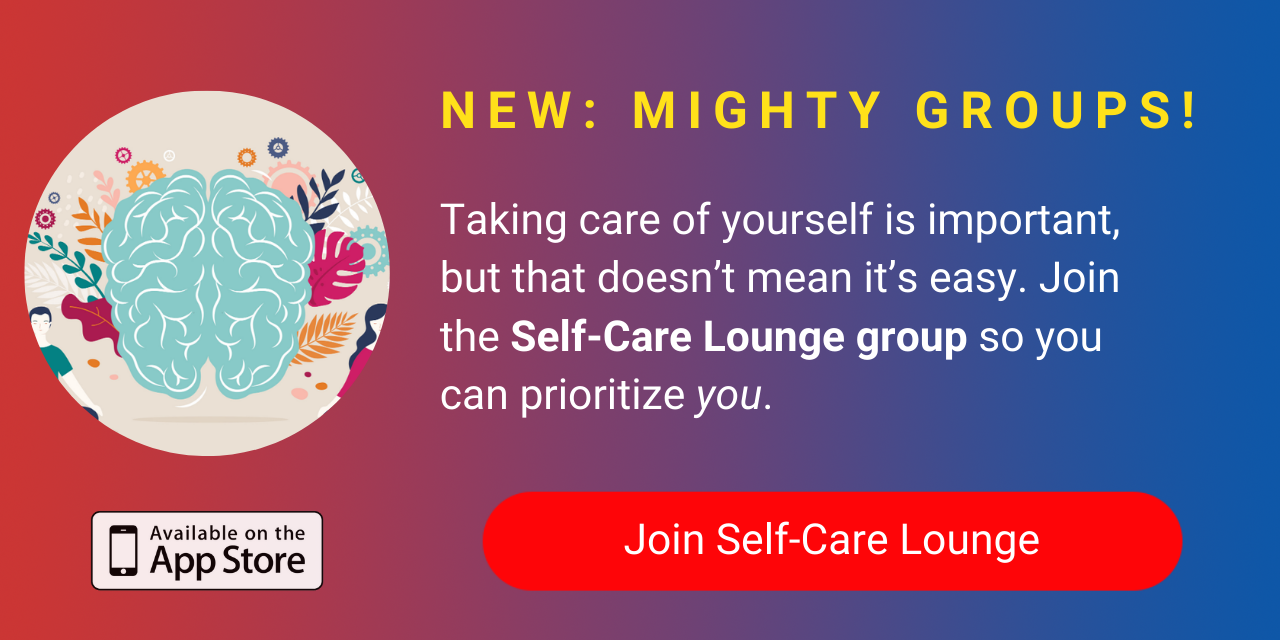When I was 17, I crashed into my first major depressive episode just as I was finishing high school. During that time, I began self-harming often. I was put on medication that made me end up in a psychiatric hospital for the first time because I was suicidal, but once I got on different meds, things seemed to be looking up.
A few years later, a physical therapist, whom I’ll call Ashley, found some recent self-harm marks as she was working on my hip while I was laying down and facing away from her. I had been in physical therapy for years for my cerebral palsy and just began working with her. Ashley’s handling of the situation was completely different than a conversation I had with a different physical therapist, whom I’ll call David, about self-harm and my mental health back when I was 17. David had been my physical therapist since middle school (around 5 years I think at the time of our conversation). In contrast to David’s careful wording and private face to face conversation, Ashley broached the subject with the question, “Were you attacked by a wolverine?” basically in front of the whole clinic.
This situation made me feel like a complete failure as a human being. I was embarrassed as I started crying in front of everyone in the PT gym. I never wanted to see her again, and when she left the clinic for a different job, I thought I’d never have to deal with her again.
But, as fate would have it, four years later she showed up to work at the new clinic I went to (David moved clinics and I followed him). This time, Ashley was briefed on the basics of what had been going on in my life. This made a huge difference.
One day, I came to PT after a long day of PHP for my depression. I couldn’t focus on my exercises or anything. I was angry from my day in treatment. It was just Ashley and me in the clinic. She suggested we kick soccer balls into the net to release some frustration. So, we did, and we were able to talk about the situation from all those years ago. That is an experience I’ll always remember. Ashley has since left that clinic (while I was away for mental health residential treatment), and I don’t know if I’ll ever see or talk to her again.
I was lucky to have a few good experiences with health professionals, but there have been times when these haven’t gone well.
While I was in school to be a physical therapist, I realized that aside from the two semesters of intro to psychology we had to take in undergrad, there was no formal education on how to support a patient’s mental health. With one in four adult Americans living with mental illness, this is alarming.
Everyone coming to physical therapy, occupational therapy, or any type of therapy is coming in for a reason. They are struggling with something physically that is prohibiting them from being their best self. They are injured, in pain, and struggling with chronic illness or disability. This is tough emotionally to go through alone. However, physical therapists are there throughout the whole journey, often seeing patients multiple times a week, and can develop positive relationships with their patients.
When people get injured or become disabled, they often lose their sense of identity, leading them to have a void in their lives they don’t know how to fill. With physical therapists seeing patients often, they have the rare opportunity to recognize changes in mood or behavior that may indicate the patient may be in the early stages of depression or struggling with mental illness. It is also important for physical therapists to have resources where they can refer patients if necessary.
Think of the high school athlete that just tore their ACL. Often, the athlete will have, at least temporarily, a difficult time adjusting to the new limitations they may face. Whole lives may be built around practice and spending time with teammates, which gave athletes social support. This may no longer exist due to an injury and going through the rehabilitation process.
People injured at work or in an accident face the same challenges of adapting to a new normal. All of a sudden, their whole life changes. Maybe they can no longer provide for their family the way they were able to before. That could easily trigger someone to spiral into depression.
Elderly patients often are brought to appointments by caregivers. It is important for physical therapists to check in with both the patient and caregiver for both physical and mental health concerns. Caregivers experience burnout at higher rates than non-caregivers.
Physical therapists sometimes need to have difficult conversations such as the “this is as good as it’s going to get” one that I’ve experienced a few times. Knowing how to approach these conversations and attend to a patient’s mental health at the same time could influence how a patient views the situation and their motivation to continue to work hard in treatment.
I’m not saying that physical therapists need to have the same background and training as psychotherapists. Instead, I’m saying that physical therapists need better education as part of the curriculum to gain a basic understanding of how to approach difficult conversations, recognize any early signs of depression and refer to treatment, and support patients while they face some of the greatest challenges of their lives.
Getty image by JulieF514.


